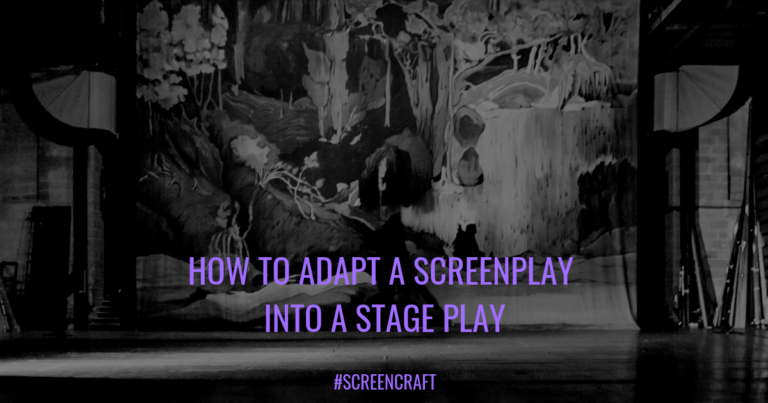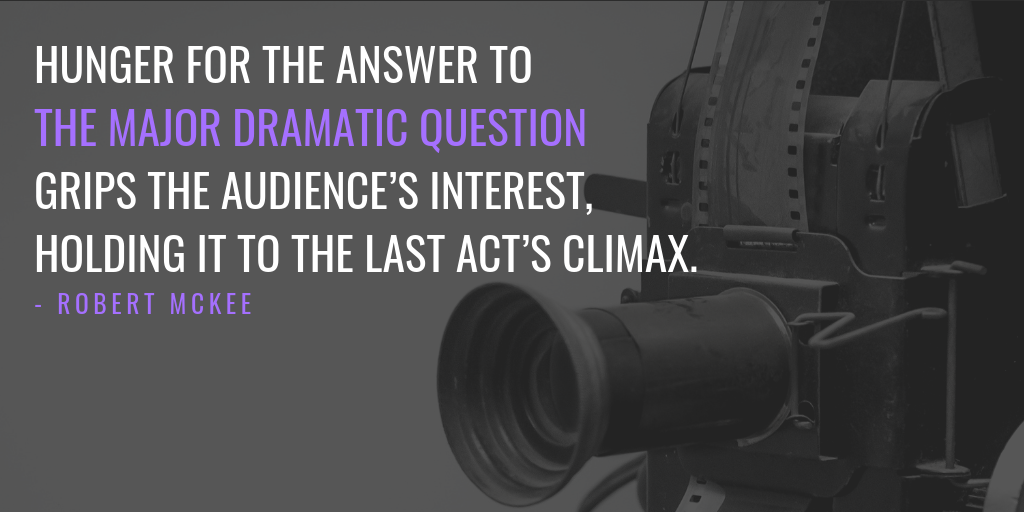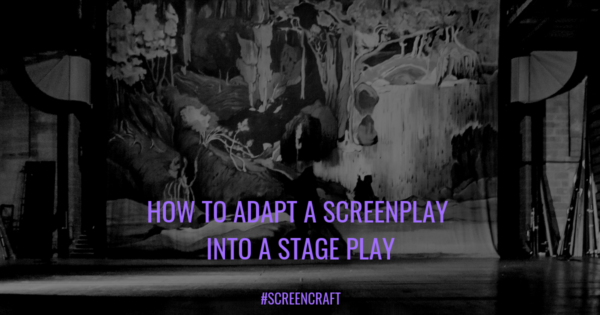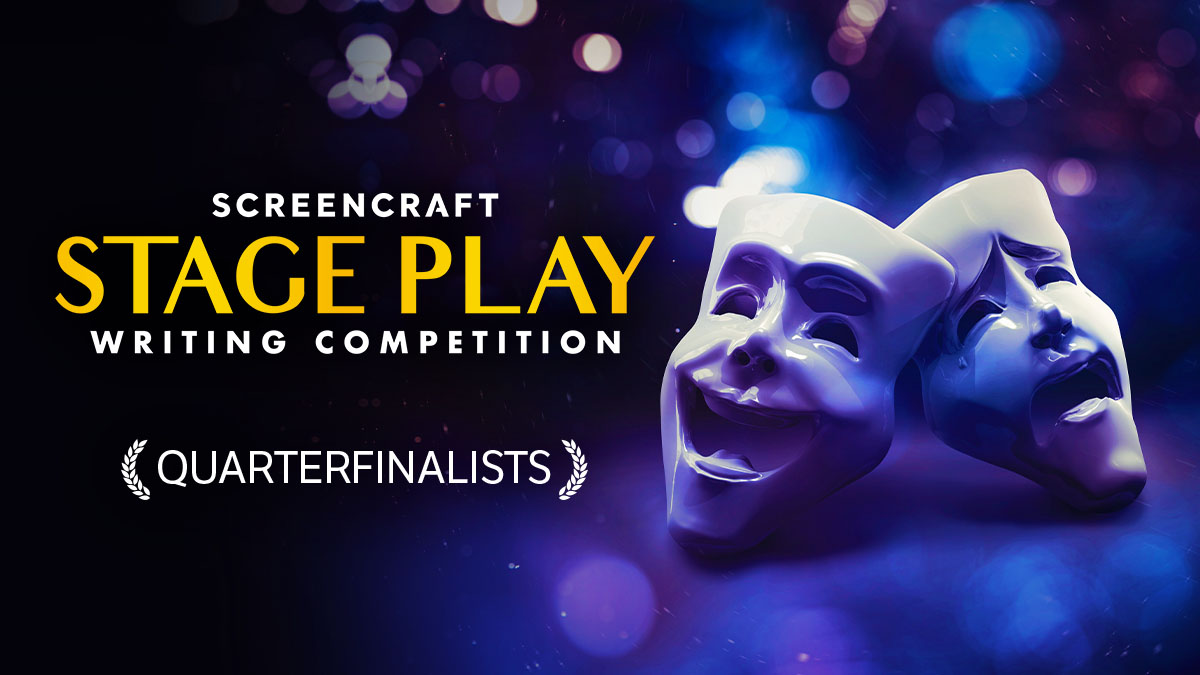How to Adapt a Screenplay into a Stage Play: The Major Dramatic Question

There are a multitude of articles with apparent advice on the differences between movies and plays (cinema is storytelling with pictures, theatre is storytelling with words; theatre is confined to fewer locations, etc.) but as someone who has spent their career at the intersection of stage and screen, I’d like to offer four next-level notes for writers based on the key differences I’ve observed, with the goal of inspiring your writing, rewriting, or adaptation of your work from screenplay to stage play.
Have a stage play that needs to be produced? Enter the ScreenCraft Stage Play Contest here.
Note #1: The MDQ

Screenwriting in Hollywood is a rigid form born from the hero’s journey and three-act structure. Overwhelmingly driven by plot, a protagonist will be changed in a definitive way by their journey, learn a clear moral lesson, and leave the audience’s questions satisfyingly answered.
Theatre, on the other hand, struggles with a question, often achieving no definitive answer.
When meeting with our clients at the studios, I’ll simplify the mediums in order to focus in on our strategy— Movies lead with narrative, Television leads with character, Video Games lead with world, and Theatre leads with the MDQ.
The MDQ, or major dramatic question, is the central thematic idea on which all plays are founded. It is the ‘why’ behind your story, and the source of relevance and connection for your audience.
“Can love survive the rashness of passion—whether it be lust or hate? (Romeo & Juliet)
“How does loss affect and change us?” (Rabbit Hole)
“What is ‘normal’ and should feelings that are abnormal be treated?” (Next to Normal)
For the duration of a play, the characters will wrestle with the MDQ, each representing a different point-of-view that ultimately results in a complex resolution, causing the audience to continue the debate following the show.
A screenplay is also founded on an MDQ, but its purpose is distinctly different. On the screen, the MDQ is the driving force behind the narrative, it’s the question the audience is waiting to see answered:
“Will Dorothy make it home to Kansas?” (The Wizard of Oz)
“Will Ethan Hunt recover the plutonium?” (Mission: Impossible - Fallout)
“Will Rachel and Nick’s relationship survive his family’s attacks?” (Crazy Rich Asians)
Once the question is answered, the movie is quick to conclude. It’s not conversation that the MDQ is looking to inspire in its audience, it’s interest and engagement. The MDQ engrosses the audience, so that their experiences become one with the protagonist, allowing them to feel a sense of catharsis.
While neither approach to the MDQ is better or worse, it is important to note the different emphasis it is given for stage plays, and the different purpose it serves.
a. How can you expand the theme in your screenplay into a theatrical MDQ?
b. How can your characters embody the MDQ in your stage play, highlighting authentic opposing points-of-view?
c. How can you structure your stage play so that the MDQ is present in every scene?
I hope that the writing prompts above can help to drive your rewriting as you prepare to submit to ScreenCraft’s Stage Play Contest.
More from this series: How to Adapt a Screenplay into a Stage Play: Characters in Conflict, How to Adapt a Screenplay into a Stage Play: Rising Tension, and How to Adapt a Screenplay into a Stage Play: About the Audience
For all the latest ScreenCraft news and updates, follow us on Twitter, Facebook, and Instagram.
Get Our Screenwriting Newsletter!
Get weekly writing inspiration delivered to your inbox - including industry news, popular articles, and more!






























